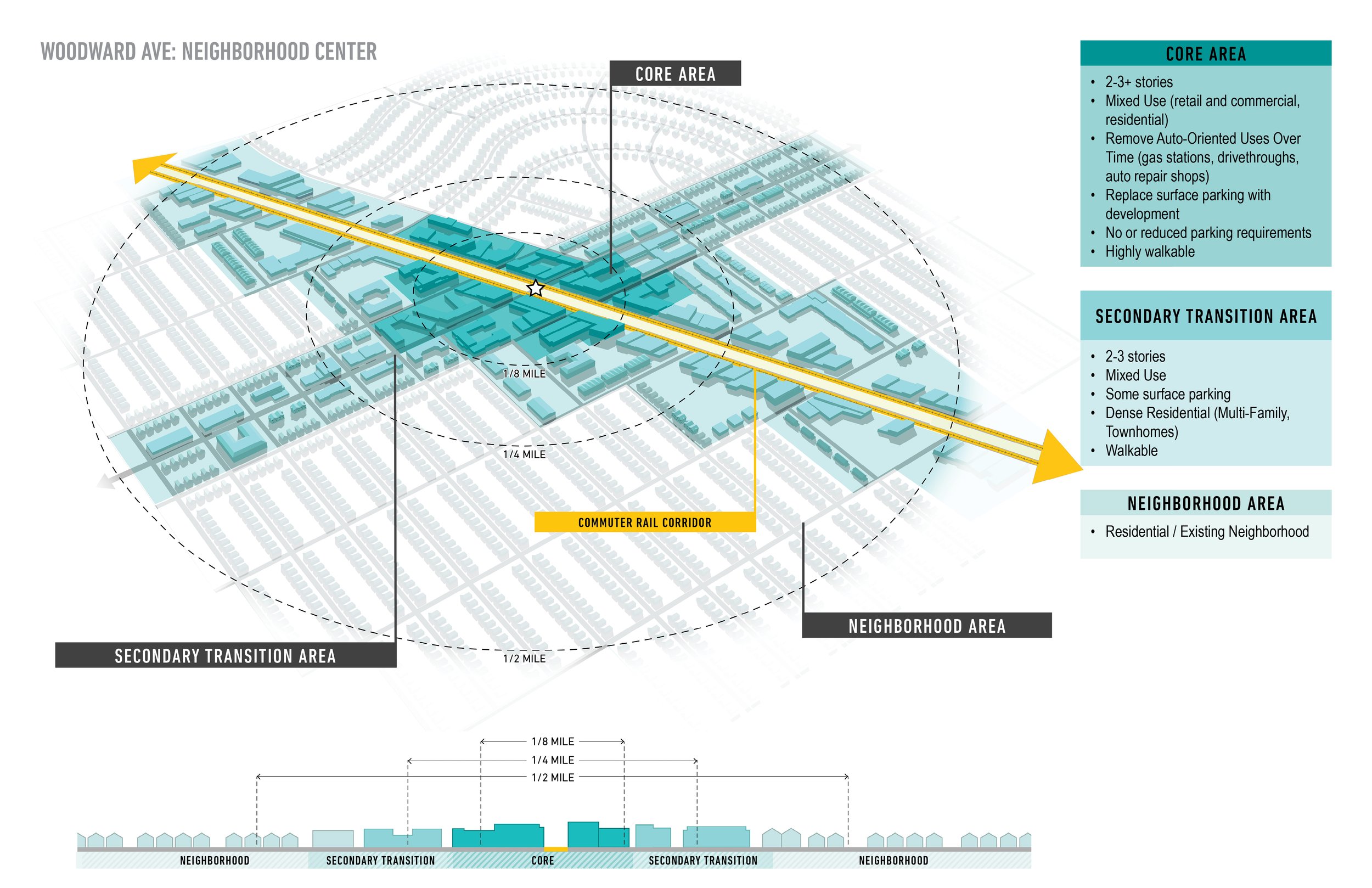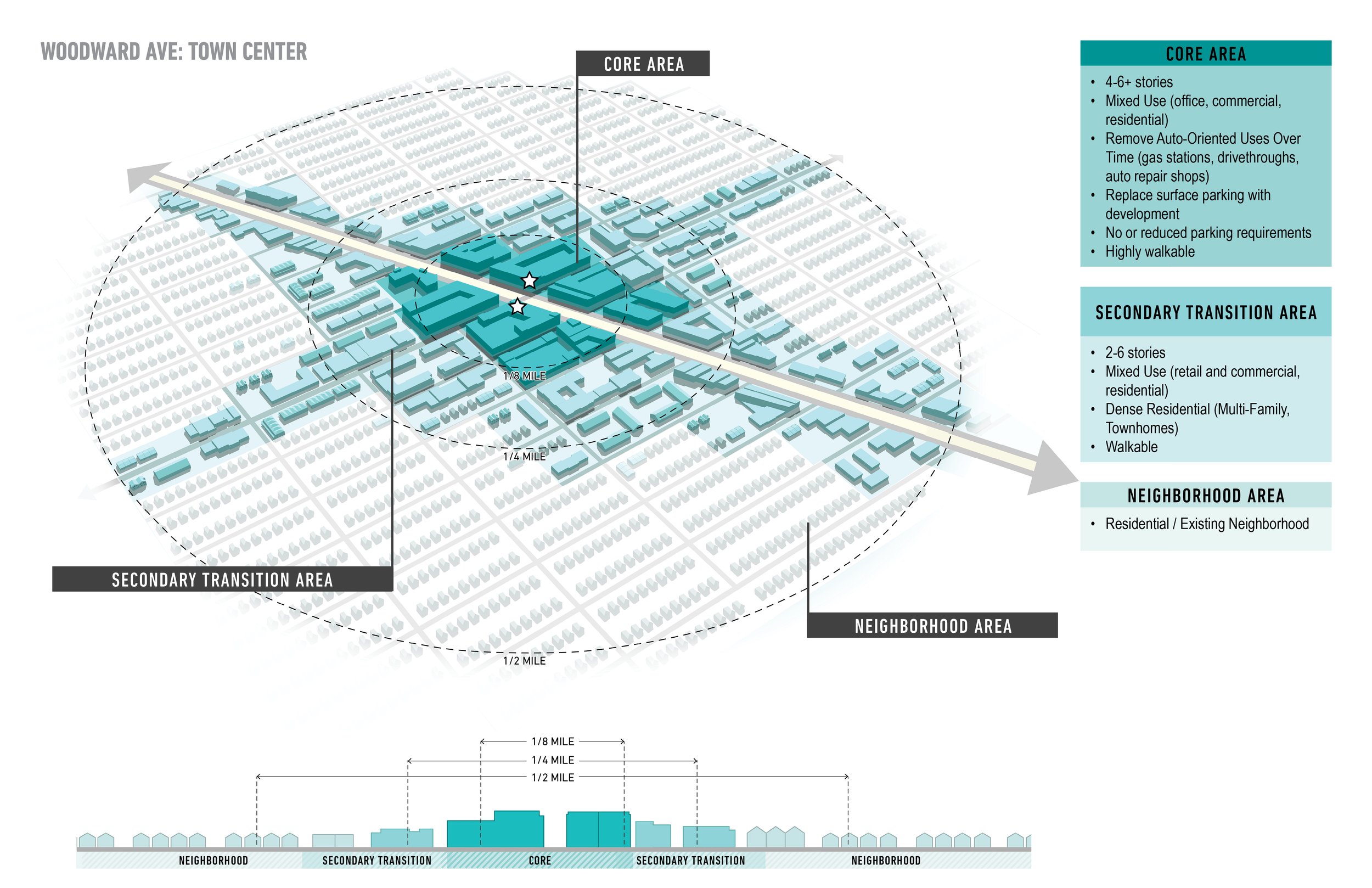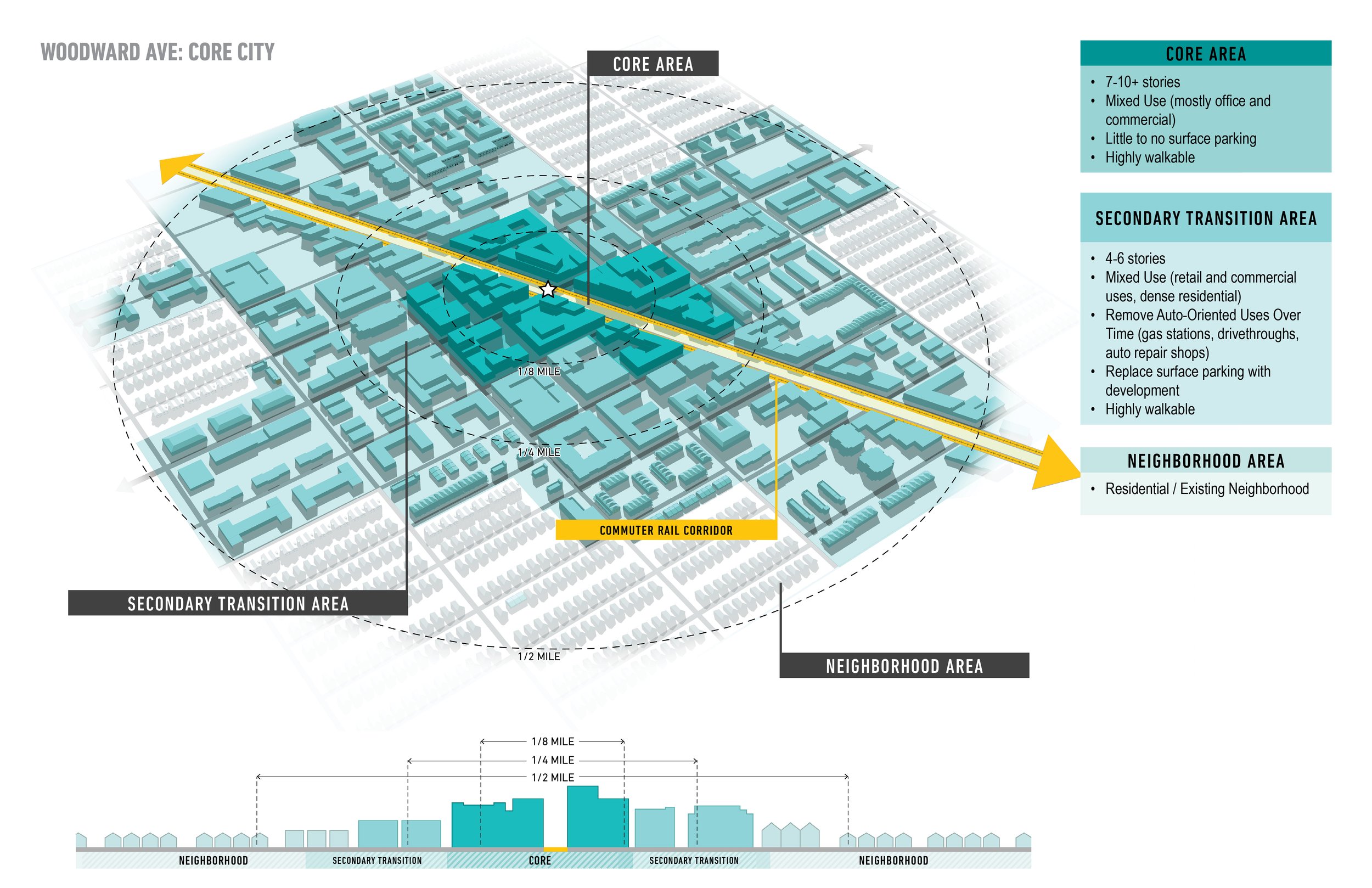
Southeast RTA Mobility Oriented Development Study Detroit, Michigan
Services Provided
Urban Design
Planning
Transit Oriented Development
Transportation Planning
Corridor Planning
Engagement
Creating innovative Mobility Oriented Development approach along major transit corridors in Southeast Michigan
MKSK’s role on the MOD Study team included:
Leading the analysis of land use, policy, and zoning and developing corridor-wide recommendations.
Developing Aspirational Station Area Typologies and communication graphics.
Developing action planning items for specific station areas along the study corridors.
Leading stakeholder engagement throughout the duration of the project.
To plan for the implications of future investment in rapid transit in Southeast Michigan, the Regional Transit Authority (RTA) sought to create a framework for “Mobility Oriented Development” (MOD) along two corridors, the Woodward Avenue Corridor (Detroit to Pontiac) and the Ann Arbor-Detroit Commuter Rail Corridor. MOD is a marriage of traditional Transit Oriented Development (TOD) and the consideration of existing and emerging mobility options, which can facilitate improved connectivity to transit and expand the impact of TOD planning principles to a broader geography. The MOD framework established along the two study corridors may be applied to major transit corridors throughout Southeast Michigan and beyond.
The three Aspirational Station Area Typologies (Core City, Neighborhood Center, Town Center) were conceived based on the scale and density of land use, the location in the “urban transect,” the station’s function in the greater transit network, and key destinations around which land use and transportation are organized.
Each prospective station area was scored on its current MOD “readiness” using metrics that fit into four categories (Place, Connectivity, Development, and Regulatory). This scoring system was used to effectively communicate and prioritize recommended actions for planners and policymakers along both study corridors to improve the MOD readiness of their communities.




